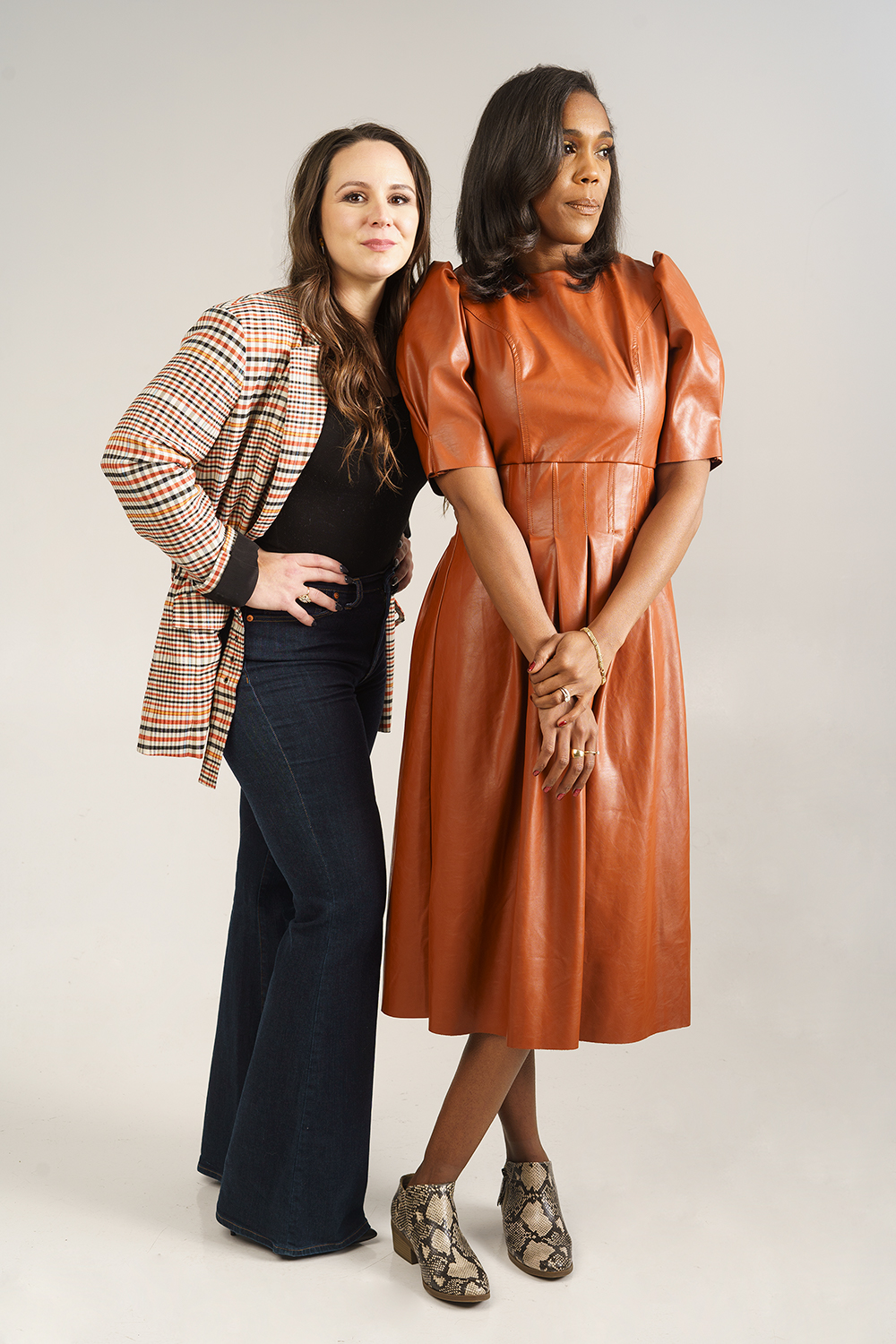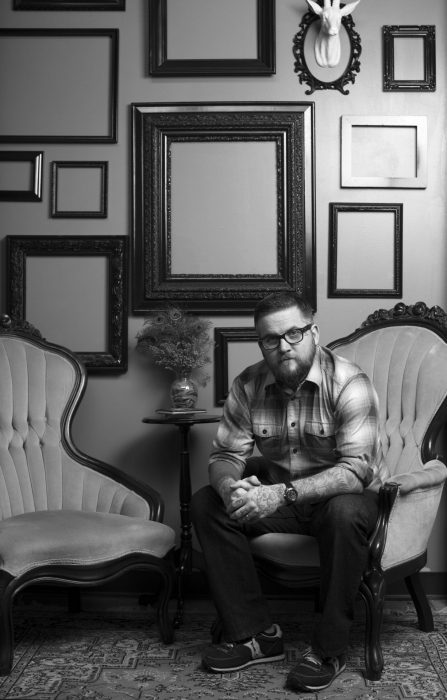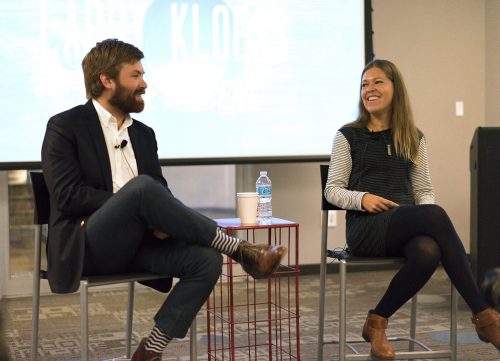Ashley Brooke James and Elizabeth Moore are the founders of TRILUNA Wellness whose specialty is bringing realistic exercise, diet, and mindfulness programs to corporations around the world. Yet, with wellness influencers popping up by the nanosecond on social media what differentiates James and Moore from their competitors? Aside from their wit, expertise, and charming best buds for life chemistry, the female business partners are relatable meaning no deprivation necessary. They make taking care of yourself fun, and quite frankly easy, which is why companies like LinkedIn, HCA, and We Work caught on to their programs right away. (Especially post-pandemic when the ladies flipped all of their programs online like a switch. Since then, they have not returned to in-person programming—and don’t plan to for the most part—as many of their clients dig participating from their home offices.)
As women who both came from the corporate world, where intense exercise classes caused more stress to their bodies, they know what it is like to try and fit a health regime into an already packed calendar. Therefore, their mission is to help workers find what fits into their lives at that moment in time. If they can squeeze in an hour of yoga in the morning, great. If not, then doing what you can is better than nothing. Clients gravitate towards TRILUNA because it is a company built around grace.
Ever since I met James and Moore at a summerlong business class, I also became immediately impressed by how social justice is intrinsically linked to their programming. As outspoken activists, they have been fearless about helping companies implement anti-racism programs into their cultures and having hard conversations with leaders about the importance of diversity. Below they talk about their passion for creating true change rather than just facilitating a “check the boxes” approach. Like everything in life, it starts with being willing to listen, empathize, and admit what you don’t know. From their stance, apathy is just as harmful as hatred, which is why the women have vowed to make it safe to talk about prejudice. They know the more people feel comfortable sharing their experience the closer we can get to systematic change, rather than numbing ourselves out to another police shooting.
Three years into TRILUNA, the pandemic hit, which forced you to totally revamp your programming. What was it like to pivot and move your face-to-face workshops and classes to a virtual setting?
Elizabeth: Financially, the pandemic was beneficial in many ways because it allowed us to turn our business global overnight. We were able to expand and grow by hosting workshops with a company based in Brazil and for media conglomerates like Linked In. It also afforded us to go deeper in breakout sessions and use our time better virtually than we could in person. It augmented our business in such a strong, positive way that we have decided that, aside from our Supper Clubs and retreats, we will not go back to an in-person model. Our services will stay solely online.
Ashley: Another side benefit was that we had to be more vulnerable in order to create the same kind of environment virtually that we were known for in person. It was really interesting how our clients felt safe enough in class to say anything they needed to because of the amount of intimacy that we brought. All of the events of 2020 also helped our business, which is based upon advocating for mental health and social injustice, because it was in the universal consciousness. Since everyone was forced to be at home and take a hard look at what was happening in the world, what we had been talking about was relevant. People were willing to listen. It was a challenging year but also rewarding.
Was there anything you were able to do in regards to your social justice work in the last year that you’re particularly proud of?
Ashley: For the first time, people are able to see leaders of an organization talk about social justice issues openly. We had a meeting with our team right after the shooting of Ahmaud Arbery. Nineteen contractors of ours were all on the screen and many of them said, “I’ve never been in an organization where I have been encouraged to talk so freely about something so horrific.” We want to be that example of systemic change starting at the top and trickling down. Oftentimes the higher-ups are bought into those conversations because it’s going to make them sound good. But, there aren’t a lot of leaders who are willing to roll their sleeves up and have vulnerable moments. I hope that by opening up conversations around social justice other organizations will think If TRILUNA can do it, we can do it too. We can’t avoid them any longer.
What would be an example of an envelope-pushing conversation that you’ve had?
Elizabeth: Diversity and inclusion have always been a part of our organization. Prior to this year, it was codified in a workshop about diversity and community within the corporate culture. However, when Ahmaud was murdered, it was the first time I realized that while I was aware it didn’t affect my life in the same way that it did Ashley’s. Fortunately, she had the nerve to sit me down one day and say, “As my business partner and best friend, you aren’t hearing or seeing what I am going through.”
That was so difficult to hear yet it was a radical moment that cracked our company culture open and made us ask ourselves what does it mean to actually be inclusive in an organization? I had to figure out where I was missing a step or could be doing better. It fundamentally changed me as a person and our business altogether. From that conversation and the ones that happened afterward, our Diversity and Inclusion series was born. It is designed to take you from active to activated. I was taking workshops, reading books, and doing all of the things that white people are supposed to do before. However, I was intellectualizing it rather than letting events like what happened to Ahmaud hit me on a heart level. It occurred to us that a lot of times this work doesn’t happen because white people are afraid to say the wrong thing. Our course is designed to help companies get started on doing the deep work that it takes to actually be inclusive.
What is the secret to your success as female business partners?
Ashley: Communication is everything. Liz and I talk all the time! I couldn’t work with someone unless I truly knew them and was having real conversations about our business and boundaries. Fortunately, even when we were forced to have difficult talks we could do it because we were comfortable with one another. Even when we’ve bumped heads we know when to walk away because we never want to disrespect the other person or make them feel less than. We’re like sisters. Yet, every week we still learn something new about each other.
Elizabeth: We met during our yoga teacher training and continued to do projects together afterward. Eventually, we started our business and became better and better friends, and fell in love and I asked her to be my business wife. (Laughs)
Any health advice for us?
Elizabeth: Our go-to quote is, “All of the kale in the world won’t help you if you have an incredible amount of stress in your life.” The wellness world tells us we’re one green juice away from perfect, one serum away from perfect skin, and one yoga class away from righteousness. None of that is true or real. That is a lie they have sold us. In reality, true wellness comes from flexibility, joy, and living a life that suits you regardless of the shape it takes regardless of what the world tells you.
Ashley: And sleep!
Elizabeth: If you want chocolate then eat it! Basically, be kind to yourself and realistic.




